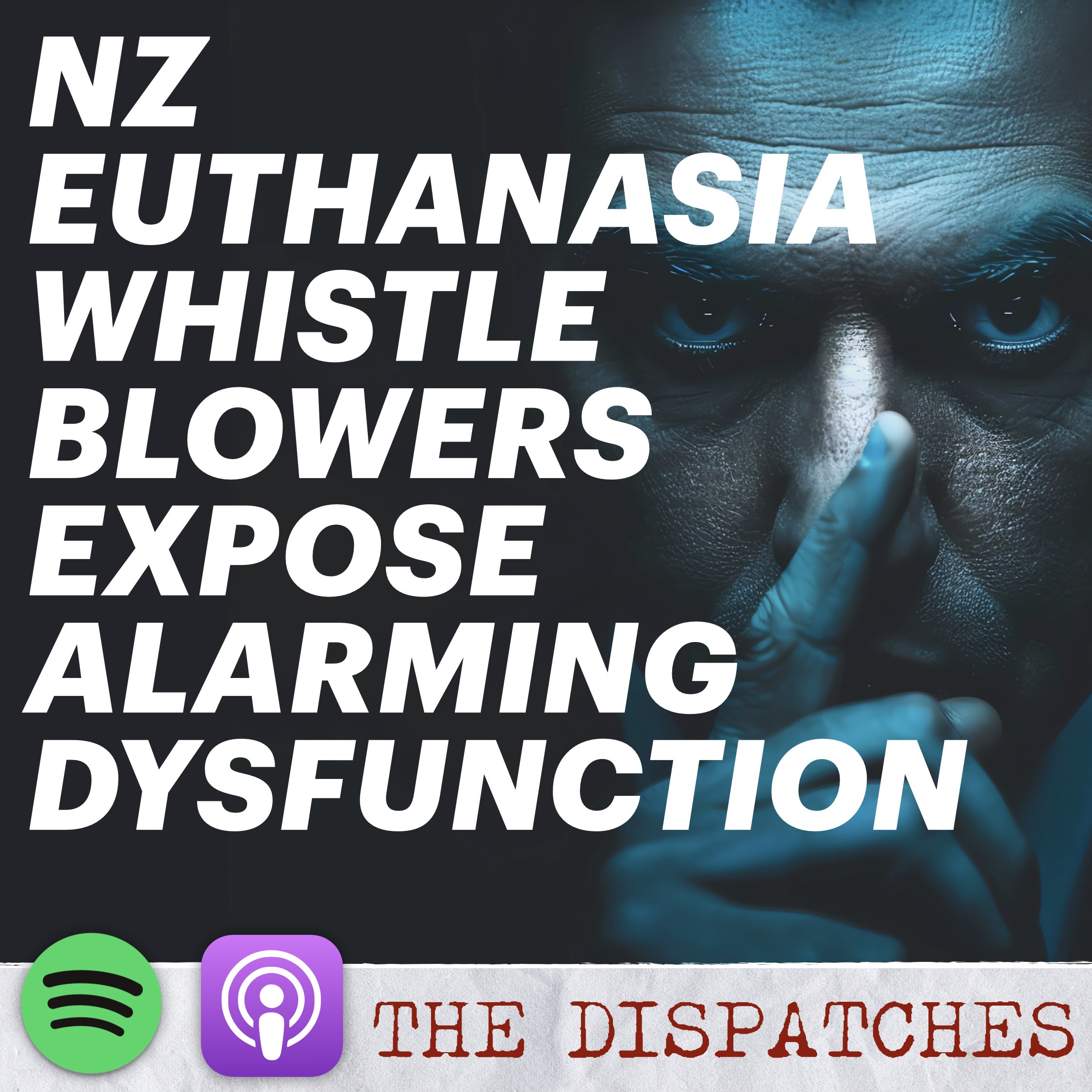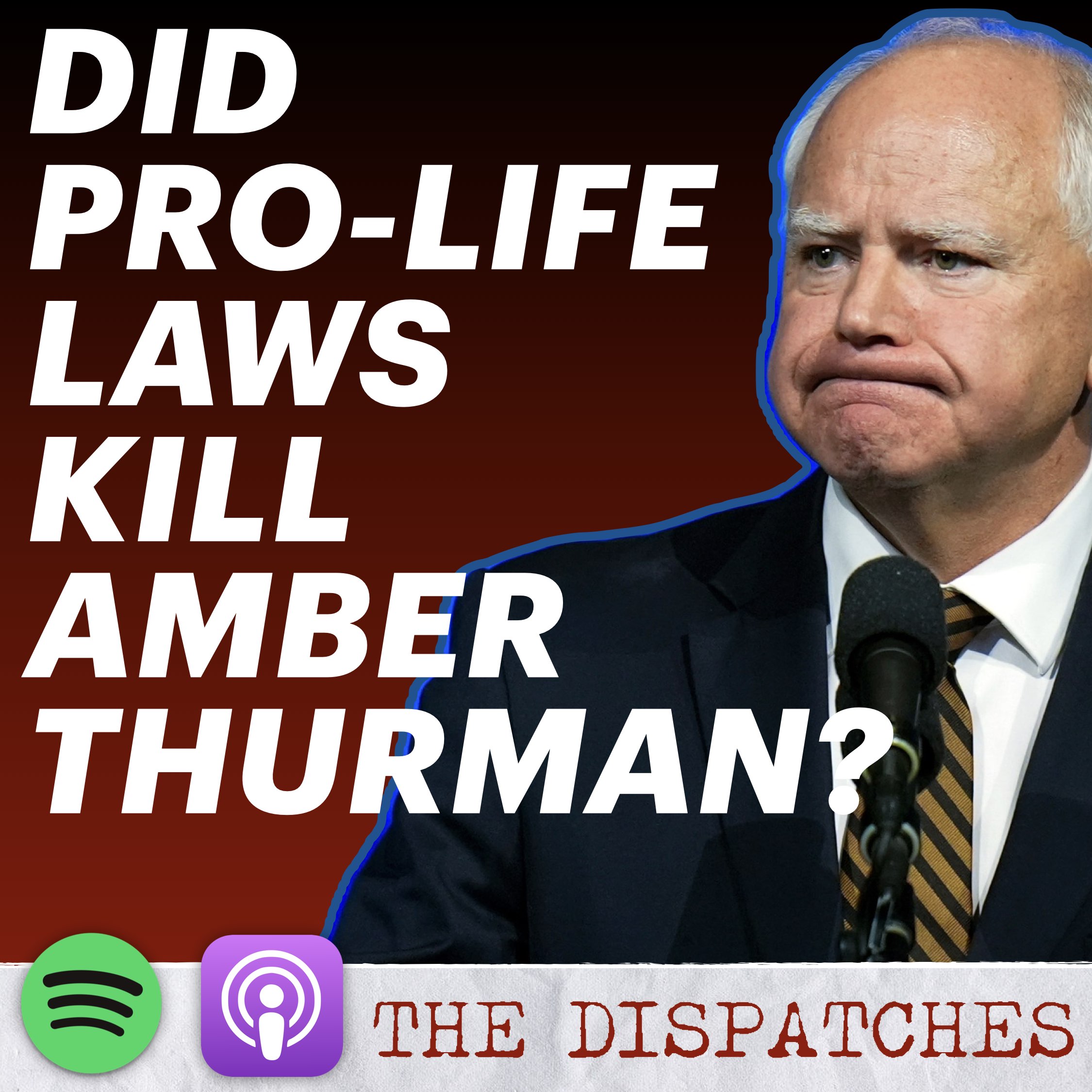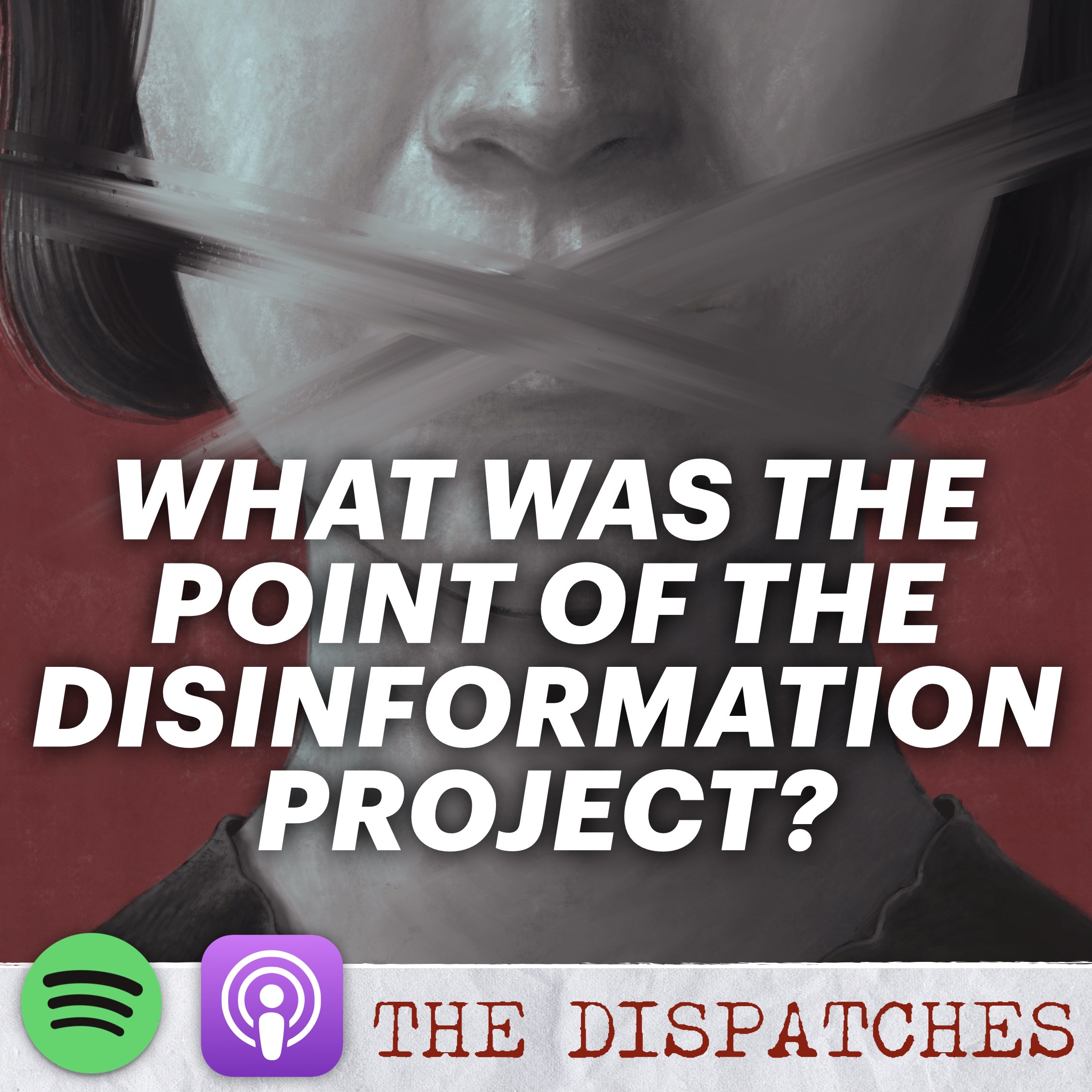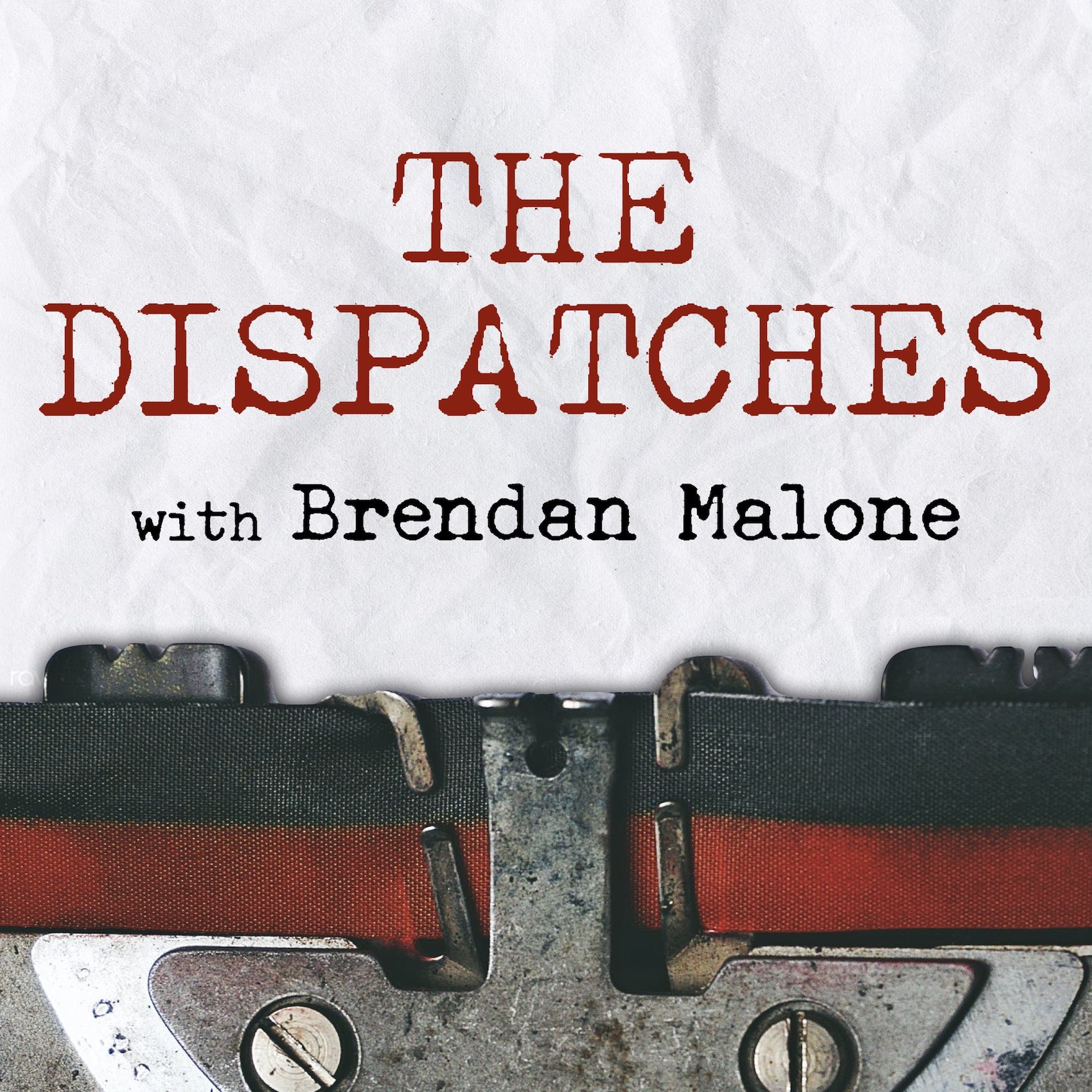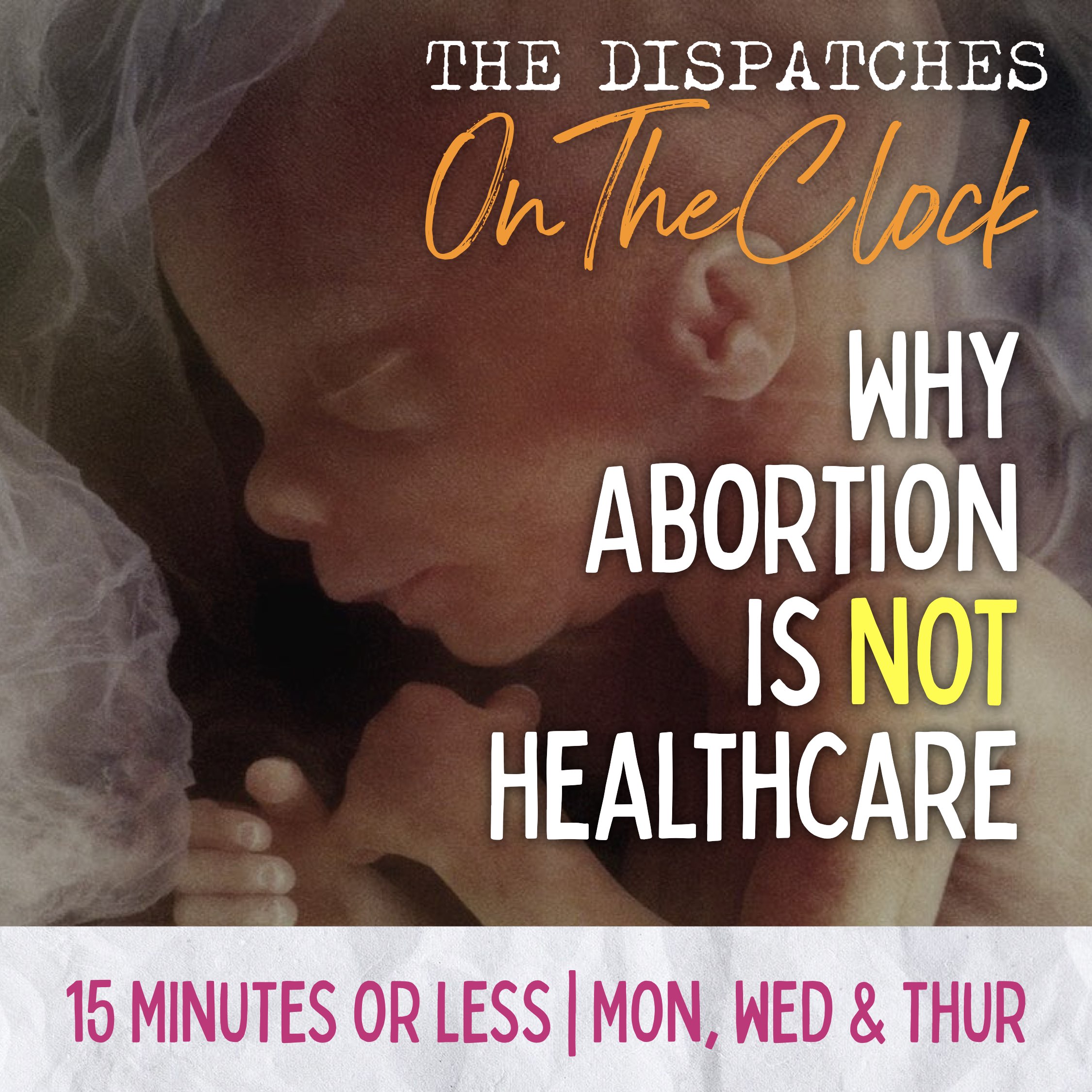Episode Transcript
[00:00:04] Speaker A: Hi, my name is Brendan Malone and you're listening to the dispatches, the podcast that strives to cut through all the noise in order to challenge the popular narratives of the day with some good old fashioned contrarian thinking. You might not always agree, but at least you'll be taking a deeper look at the world around you.
Hi everybody. Welcome along to another episode of the Dispatchers podcast. My name is Brendan Malone. It is great to be back with you again. And today's topic of conversation is New Zealand euthanasia. Whistleblowers expose alarming dysfunction before I get into that, though, just a quick reminder. If you want to get a daily episode of the Dispatches podcast, that's an episode of commentary every single day of the week, Monday through Friday. Then go to patreon.com leftfootmedia and become a dollar five monthly patron. The link is in today's show notes. A huge thank you to all of our patrons. It's thanks to you that this episode is made possible. Alrighty, today we're gonna be talking about an article that was published a couple of days ago by the New Zealand Herald, and rather shockingly, the article is still hidden at the time of recording this anyway, behind a paywall, and there has been no other coverage. Despite the fact that what I'm about to read to you in this article is truly shocking, it has exposed some very serious issues with New Zealand's euthanasia regime. They are already baked into the system. Those of us who were aware of how the legislation was structured were aware before the law was even passed that this was going to be a problem. But it is kind of surprising still to see how quickly two whistleblowers have come forward to basically say, look, there are some major problems here, and the problems that they are describing are quite astounding. We'll talk a little bit more about this in light of the overseas experience at the end, but let me start by reading to you from this article, which as of today is still hidden behind a paywall. The headline is assisted dying in New Zealand. Reviewers say oversight is so limited that wrongful deaths could go undetected. Two members of a committee tasked with ensuring assisted deaths complied with the law say the oversight process was so inadequate, they would not have known if someone had died wrongly. Now, just so we're clear here, these are two members of the euthanasia oversight committee, and these people have been already on the inside in the first couple of years of the euthanasia and assisted suicide regime here in New Zealand, and what you are about to hear from them is really quite shocking. The former end of life review committee members said they were extremely concerned about how little information they received about patients deaths and raised it repeatedly with the Ministry of Health and successive health ministers. So, in other words, this is not simply a single government problem, it is across the board. When they complained about receiving assisted death reports with blank sections, they were told by the ministry to assume nothing was wrong. A response which led one of the members to step down from the roll. Another member described it as a tick box exercise. And this isn't even the worst of what they've actually blown the whistle on here, by the way, folks. But I think it's important to understand that this is actually consistent with the overseas experience where people consistently play fast and loose with the supposed legal safeguards, reporting requirements, etcetera. This kind of behaviour is actually not uncommon when it comes to practitioners of euthanasia and medical suicide. In response, the ministry says there are multiple safeguards built into the law, though we'll examine the scope of the committee in a review which is now underway. So, just so we're clear about this, the end of life review committee is a panel made up of only three people, and their job is to look at the death reports and to see whether or not there are issues with the death reports that need to be reported to the registrar. So it is the bare minimum safeguard, because the patient has already been killed, so it's too late to do anything to save a life, but it is a bare minimum safeguard to ensure that the basic rules, these supposed safeguards, are actually being followed. So it is just absolutely glib and I think, unacceptably dismissive on the part of the Ministry of Health. Hey, there's multiple safeguards, just chill out. We will examine it, of course, but it's no big deal, effectively, is what they're trying to suggest here. Palliative care specialist doctor Jane Greville and ethics expert Doctor Dana Wensley were inaugural members of the three person review committee when it was set up in September 2021, immediately before the end of Life Choice act came into force. And I think there is a really strong and compelling argument right from the get go here that three people on that committee is absolutely not enough. There needs to be even more accountability than that. I would have thought this would have been a bare minimum five or six person committee with wider representation than what it's actually got to give proper scrutiny to what's going on. The committee is responsible for assessing clinicians reports on each assisted death and checking that the law has been complied with. In cases where the law may have been breached, they are required to alert the end of life choice registrar. In a letter sent to Health Minister Shane Retti in March, obtained under the Official Information Act, Greville said that while the introduction of the new law had been very smooth, the committee had been constrained to the point of irrelevance. Now, I don't know how to break this to her, but maybe she's realised this now already. But this committee was designed, I think, to actually be this way. This was deliberately set up so that the number of proper safeguards and accountability measures were limited, so that they could just have a euthanasia regime with very little oversight. If you look at the legislation, I mean, the only other option that you can, or possible conclusion, sorry, that you can come to when you look at the legislation, is that if this isn't deliberate, this is some of the most inundated, inept legislative work that we've seen in our country. It's just so woefully lacking. Members did not have access to basic material, including a patient's diagnosis, prognosis, assessment of capacity or information which could help detect any hint of coercion. The time at which a patient had their lethal dose of medication was also not included, meaning the committee could not consider cases where death might have taken longer than expected. So, just so we're clear, remember the role of this oversight committee. Their job is to examine the death reports and make sure that the legislation is actually being followed. But they are not provided the diagnosis, the prognosis, the assessment of capacity or information which could help detect coercion. They were also not told the time at which a patient had their lethal dose, which means that they can't tell whether or not procedure is being followed in a way that is efficient, or whether or not there are these long drawn out and perhaps potentially even torturous deaths taking place. This is absolutely shocking. Which is why to have the ministry of Health just sort of glibly say, oh, look, no, there's plenty of safeguards in place when this is going on. This is one of the safeguards.
While Greville said she had no evidence that anyone had died wrongly, she was concerned that the committee would not be able to detect wrongdoing if it was occurring. She told the Herald it was a tick box activity. In the absence of detailed information, Greville has instead sourced information informally from the doctors involved. And that's just not good enough. That is not a transparent and open paper trail, it just is not good enough. That information often conflicted with the assisted dying reports and gave no reassurance that the law had been followed. We have been unable to explore these sometimes jarring inconsistencies, she said in her letter. This is an astounding revelation. So what she's saying, just so we're clear, is that the reports, the official reports, are saying one thing, but then when she's gone to actually gather evidence from the doctors involved, there are inconsistencies. And the fact that she has used the word jarring would seem to indicate that these inconsistencies are not minor or inconsequential. They are serious. The two committee members occasionally attempted to raise what they felt were important issues, but were told that this was not within the scope of their role. So in other words, when they can see there's problems and they raise the problems internally, they get told, hey, just shut up, sit down. That's not your job. In other words, there's problems and no one is actually engaging in a proper process of accountability or scrutiny. Wensley became concerned about the unequal distribution of assisted deaths, noting that more of them were occurring in small rural areas than anticipated. When she sought more data to check her sense, it was denied by the assisted dying secretariat, she said in a letter to former health minister doctor Ayesha Verrall, this is unbelievable. This is a member of the oversight committee who is asking for information that is pertinent to her role and she's being denied that information.
So you see what's going on here. They've created a system where they've siloed everything off in such a way that accountability becomes impossible. Key data is hidden and siloed off from people who actually need to see it. And so you've got all these little silos collecting independent data, but no one main oversight and accountability body. This is just not good enough. And the fact that it's happening in rural areas, more so than was expected, is important because what it could point to is that these people are having euthanasias because they are not receiving proper palliative care, because it's not being properly funded in those areas.
A ministry of health spokesperson said Wensley had raised an important equity question and officials had taken it seriously. Well, so seriously that they didn't actually provide her any of the data that she asked for. I'm sorry, but I just don't believe this based on their actions. But the relatively new service lacked enough data to draw conclusions about equity and access, and this would be investigated when a more robust data set was available, likely to be several years. This is insane. We've been doing this for three years now. To claim that there is not enough data says you have not done your job properly. And when you look at the minimal data that is being collected and made transparently available for the public to scrutinise and see exactly what's going on, you realise there is a problem here. They are not collecting enough data. And this was something that was highlighted before this law was even passed. This is just not good enough. And I apologize if I'm repeating myself. You're going to hear me say that a lot today in this episode, because this is a case where we are talking about the possible wrongful killing of vulnerable New Zealanders. It is despicable and it is absolutely unacceptable that not more is being done to address this. The spokesperson also said that such an investigation was not within the committee's responsibilities and that Wensley's question had been passed to the ministry's research team. On another occasion, a patient suspected of having frontal dementia. Now have a listen to this because this is absolutely astounding. This is an actual case that happened on another occasion. A patient suspected of having frontal dementia who did not speak English was approved for assisted dying despite not having an interpreter present for their assessment. That is unbelievable. You just cannot tell me that that is an acceptable standard of ethical medical care. It just is not. You've got a patient who is suspected of having frontal dementia, they don't speak English, they don't have an interpreter present. And despite that fact, they were still given the approval for assisted suicide or euthanasia under that circumstance. It is unbelievable that that's not just roughshod cowboy behaviour, it is absolutely immoral. There is a complete lack of medical ethics in what happened in that situation.
Greville said that because this information did not fall within the scope of the committee, a recommendation for interpreters for non english speakers was not accepted, though she believes that practitioners have been asked to use an interpreter in these cases. So I don't know what that means. I assume maybe someone else has perhaps raised this issue, but the fact that the committee who has oversight of the death reports can't actually make recommendations to improve safety is astounding. The system is fundamentally flawed. These are decisions of life and death, Greville said in her letter to Shane Retty. As always in healthcare, mistakes are made and sometimes decisions and judgments turn out to be incorrect. Without adequate review, the processes and the practitioners are extremely vulnerable. Hey, hey, hold on a minute. What about the vulnerable people who are having their lives prematurely and wrongfully ended because of this debacle. What about them? She added, I am extremely concerned and have been for some time, and I say good honour, by the way, for actually not just blowing the whistle here, but also for trying to deal with some of these issues. The ministry spokesperson said the committee was supplied with all the information required for it to perform its role as specified by the law. That statement there is probably one of the most important to understand in all of this. Let me read it again. The ministry spokesperson said the committee was supplied with all the information required for it to perform its role as specified by the law. In other words, this committee is little more than a Potemkin village. It looks like accountability and it looks like a safeguard, but in actual fact, the way the law is structured, it's not getting enough information to do the proper role of safeguarder. It is not able to actually do the very thing that Seymour and company are claiming that this thing is supposedly doing for vulnerable New Zealanders. This is absolutely shocking. In other words, the legislation is flawed. Advice was sought on the scope of the committee and it was clear that they could only look at the information provided in the death reports.
So, in other words, they are limited. This committee has its hands tied and they cannot do anything meaningful to protect vulnerable people. While the act may have some limitations in its current form, it operates with multiple safeguards to ensure the act's requirements are complied with at all stages of an assisted death. The spokesperson said. Well, in response, I would say, show me the actual black ink letter of the law that provides those safeguards, because I know this legislation and those safeguards are woefully inadequate. So if you think there's more safeguards here, what are they? Because basically what this sounds a lot like to me is little more than bureaucrat PRCom's team replies. So what you do is you say, oh, no, no, no, it's all right, there's multiple safeguards. Nothing to worry about, nothing to see here. Please leave us alone, don't dig any deeper and investigate into what's really going on here, because we've told you there's multiple safeguards. Didn't you hear us? Just trust us. There's multiple safeguards. Greville applied to be reappointed in May 2023, but did not hear back until March this year. So that is almost a one year delay before she hears back. And then she said she was told by associate health Minister David Seymour that she would not have her term extended. So the person who was probing at some serious deficiencies in the legislation, crafted and put forward by David Seymour was not reappointed by the very same architect of the deficient legislation. This is banana republic nonsense. It is just unbelievable that this is happening. Seymour should have his mitts nowhere near this review process. He should not be involved at all. This is his big legacy project. So he's inserted himself into the process, this investigative process that is supposed to be, I think we all thought, independent. It turns out it's actually not independent. The Ministry of Health is reviewing itself and according to its own terms, which actually really allow it to dictate what is and what isn't explored and what comes next. And David Seymour is the associate minister of health and he's involved in this process. And here he is with the ability to actually remove people who challenge problems in his euthanasia regime. I thought my reappointment would have been unlikely, given my concerns, she told the Herald. And that is really troubling. What that means is they are only hiring yes men and yes women to these committees. That is not safeguarding, that's not how accountability works. You want people in the room who are going to be a thorn in the side. That's how accountability works. Not people who just go, yeah, yeah, yes, yes, yes. Tick the boxes. It's all good. Next one. Yes, yes, yes. Tick the boxes. All good. Next one. In a statement, Seymour said that appointments to the committee were based on ministry recommendations. He said he appreciated Greville's service and he had thanked her for her contribution. He's not answering the question there, though. That's really key in all of this. Why was she sacked? It's not the ministry that does the sacking, the hiring and firing, it is the minister. He receives recommendations and then he's the one who makes the call. And then he turns around and says, well, I appreciated her service, but, yeah. ACT leader and associate Health Minister David Seymour said his decisions around the appointment to review committee members was based on ministry recommendations. Yeah, we already heard that, David, but it's not convincing. I'm sorry, it is just not convincing. You should have nothing to do with this process. This is the inaugural review, the very first one of its, kind of your legacy legislative project. You should have nothing to do with this. This should be totally independent. And even if all of this is somehow above board, which I would have serious questions about, but let's say it all is. This doesn't look transparent. There's no transparency, there's no hands off involvement here. This is just not acceptable. A former member suggested that her failure. This is Greville's failure to be reappointed may have been political. Well, I don't think you have to be a rocket scientist or a conspiracy theory to see that. Wensley's final straw came when she complained about a malfunctioning it platform, which meant some assisted death reports were produced with blank sections. In response, the committee received a memo from the ministry which said they should assume no issues. Greville said the ministry spokesperson set a change in a separate platform run by the Department of Internal affairs meant that when a clinician had nothing of note to report, it changed the form from nil to a blank.
After the committee declined to accept this, the ministry began asking doctors to manually enter the data. A new IT platform was expected next year. So just so we're clear about this, what you've got is a situation where the IT platform is not actually producing transparent enough data for the review committee to look at. And the Ministry of Health's response is to say, oh, just don't worry about it. The it guys have told us that, you know, if the doctor writes nil in there, they just blank the field out. So you get a form and you can't tell whether there's a provision of information that should have happened but is missing or whether the doctor actually had nothing to report. You can't tell the difference. Remember, this is supposed to be a safeguarding committee. Like I said, this is banana Republic level madness and incompetence. And just to add insult to injury, they're not going to fix the problem until next year. When next year, end of next year, beginning of next year, it shouldn't be happening like this. Wensley, who was based at the University of Auckland, stepped down last October. When her two year term finished. She told the Herald she had offered to serve another term, but after she received the memo from the ministry, she decided to resign because she felt it went against best practice. The ethics expert said that the assisted dying service was generally working well and the health professionals involved were extremely capable. But the oversight process was the one piece of the law which was badly lacking. Which brings me back to your first comment. How can you be certain it's actually working well, quote unquote, whatever that actually means, because you don't have enough oversight of what's going on. Verrall replied to Wensley's letter to say that the issues she had raised had been recorded by the ministry and would be considered in future reviews. So they're going to keep on doing this without proper oversight. They're going to keep on ending people's lives and assisting in their suicides, and they think it's good enough to say, oh, look, don't worry, we'll look at that in the future, this lack of oversight that you've raised with us. She told the Herald that she had asked officials to look into the concerns that Wensley had highlighted. Doctor Wensleys tenure on the review committee was very much appreciated and I valued her expertise and insight, she said in a statement. Yet again, this is more of the same dodging, accountability. Oh, look, yeah, I raised it. Their service was great. This is the same talking point we heard from David Seymour. Oh, we really appreciated their service. After Wensley's departure, there was a period between November and March when the committee was not signing off on assisted dying reports at all. Greville said the reports were still being reviewed by registrar Kristen good, but without the additional approval of the committee. So just so we're clear here, and this is something some of you may have heard me speak publicly about this issue, there has been a period where the oversight committee that looks at the death report has not actually been meeting to look at those death reports and only one person, the registrar, has been looking at them and signing off on all of them with no other scrutiny or accountability to ensure that she's not missing things or not fudging things. This is supposedly a safeguard, folks. The End of Life Choice act is currently being reviewed by the Ministry of Health as required after three years of operation. In a statement, Health Minister doctor Shane Retti said the review would consider the scope of its various entities. Both Greville and Wensley have made submissions. Greville said the review was an opportunity to make the oversight process safe, robust and transparent. There is no consequence greater than death, she said. You can say that again. And holy moly, this is absolutely unbelievable. But you know what's so scandalous about all of this? So far, I have not seen a single other media outlet in our country report on this. This is serious. It doesn't get any more serious than this and no one cares.
This is just diabolical. And by the way, as I've said earlier, this was warned about before the legislation even went to referendum. A good friend of mine began and fronted lawyers for vulnerable New Zealanders and this group of legal experts issued public statements, they did media interviews, they talked openly about the fact that this legislation was woefully lacking and the safeguards were seriously deficient. Were they listened to? Nope. They were just ignored. The politicians were not taking seriously and you can see quite clearly they didn't take seriously. The concerns that were raised because the legislation that was put forward for the public to vote on, who also would have lacked the necessary knowledge to understand all of this, was woefully deficient. And you can see that right here and now. We're only approximately three years in, and we've already got two whistleblowers from inside the system who are saying there are serious problems here.
And by the way, as I've said earlier, this is a consistent trend that we've witnessed overseas. This is a consistent problem that happens to you. Get people who play fast and loose with the legislation, people take shortcuts, the supposed scrutiny and accountability, it all just goes out the window. The regime takes on a life of its own, and it doesn't really want to be held accountable for what it's doing. We are talking about the deliberate ending of life, or the deliberate assisting in the suicide of a patient. And the state has mandated agents, which it has given the legal power to end other people's lives or help them to end their own lives. The potential here, if it goes wrong, is the wrongful killing of vulnerable people.
This should be a priority for fixing. This should be an absolute priority. There should be wall to wall media outrage about this, but there isn't.
Something is seriously wrong.
And I would encourage you to speak up to have conversations with your friends about this issue. Share this episode with them, but tell them what's going on. Even if the mainstream media isn't willing to actually do its job properly, we need to actually take responsibility for getting word out there to other people about the problems here, because this matters. Think about the vulnerable members of your own family, of your own community. They matter. And it's for them that we should be speaking up. Thanks for tuning in. Don't forget, live by goodness, truth and beauty, not by lies. And I'll see you next time on the dispatches fire.
[00:26:43] Speaker B: Can't you see it too?
Lies are lighting up the room we stand here watching as the house we built is burning down am I the only one who sees the ashes on the ground?
I can't get it off my mind still thinking someday we'll be fine but here we are the flames take everything I dreamed about how many teardrops what will it take to put the fire out?
Oh, I just wanna cry our love is just smoke in the sky ooh, I'm waiting for the day you say you're so sorry oh, I wanna move on but I'm still wishing that I'm wrong still hoping for the moment when you say you love.
So come home close.
